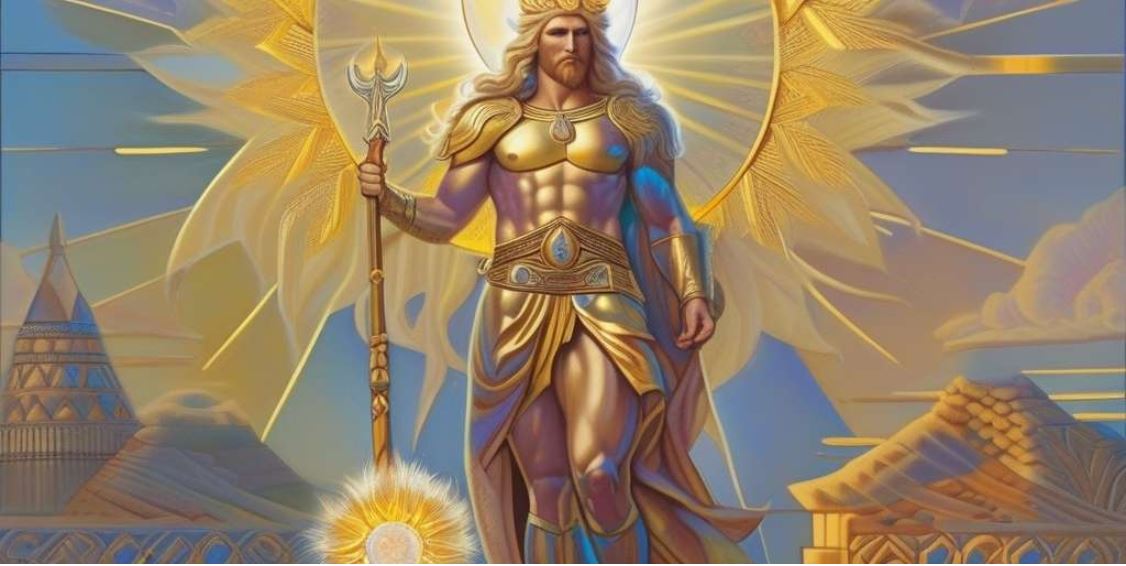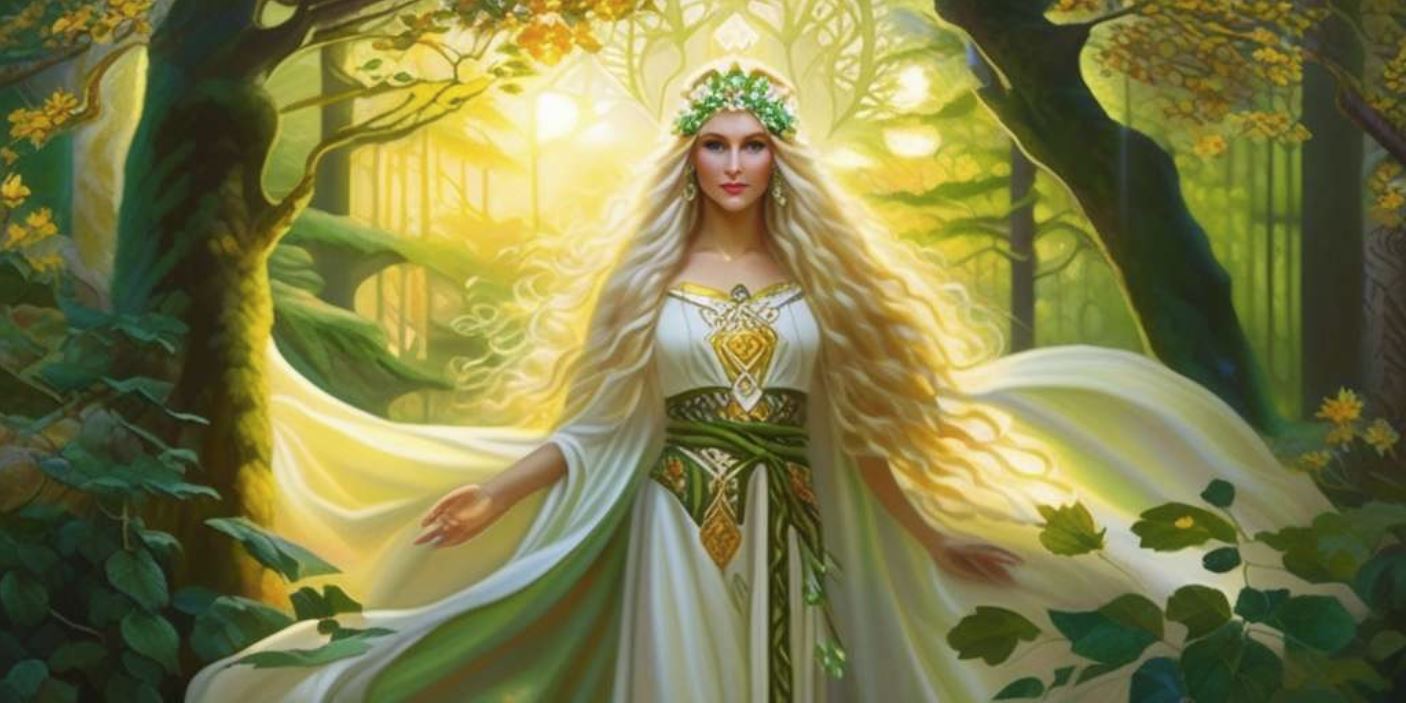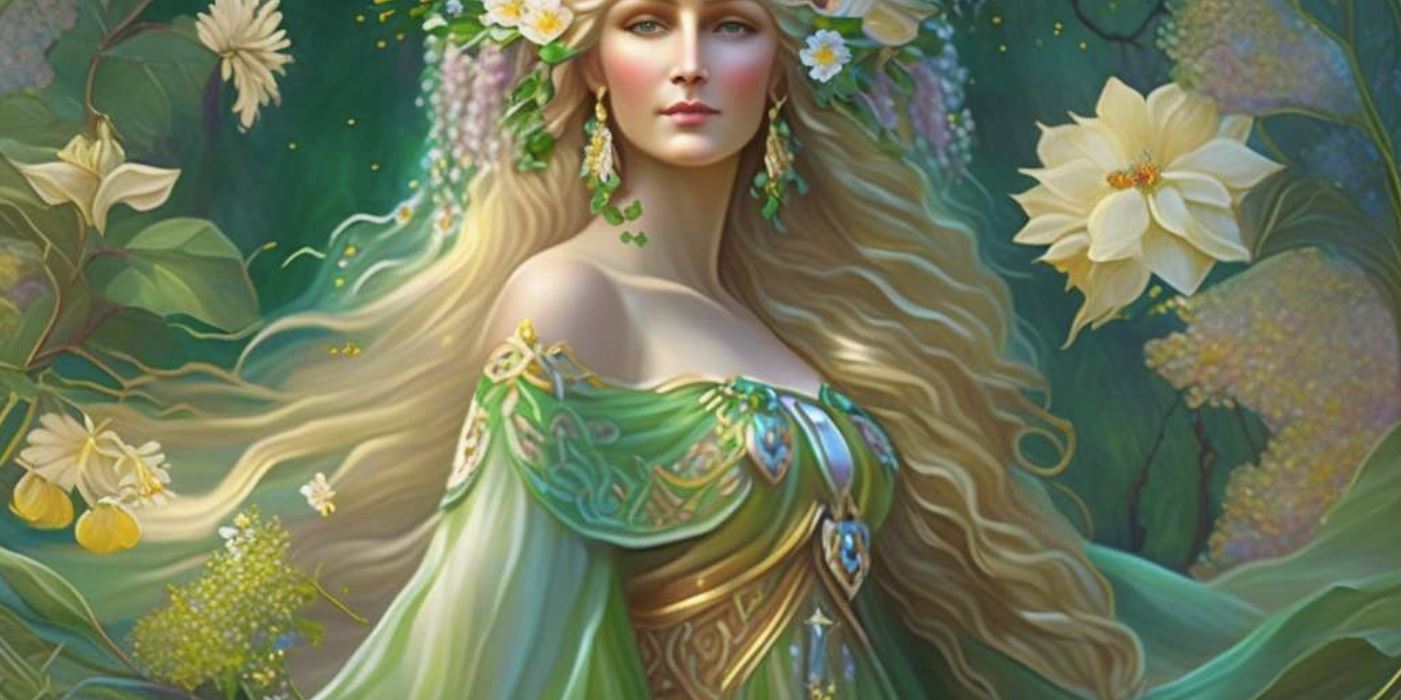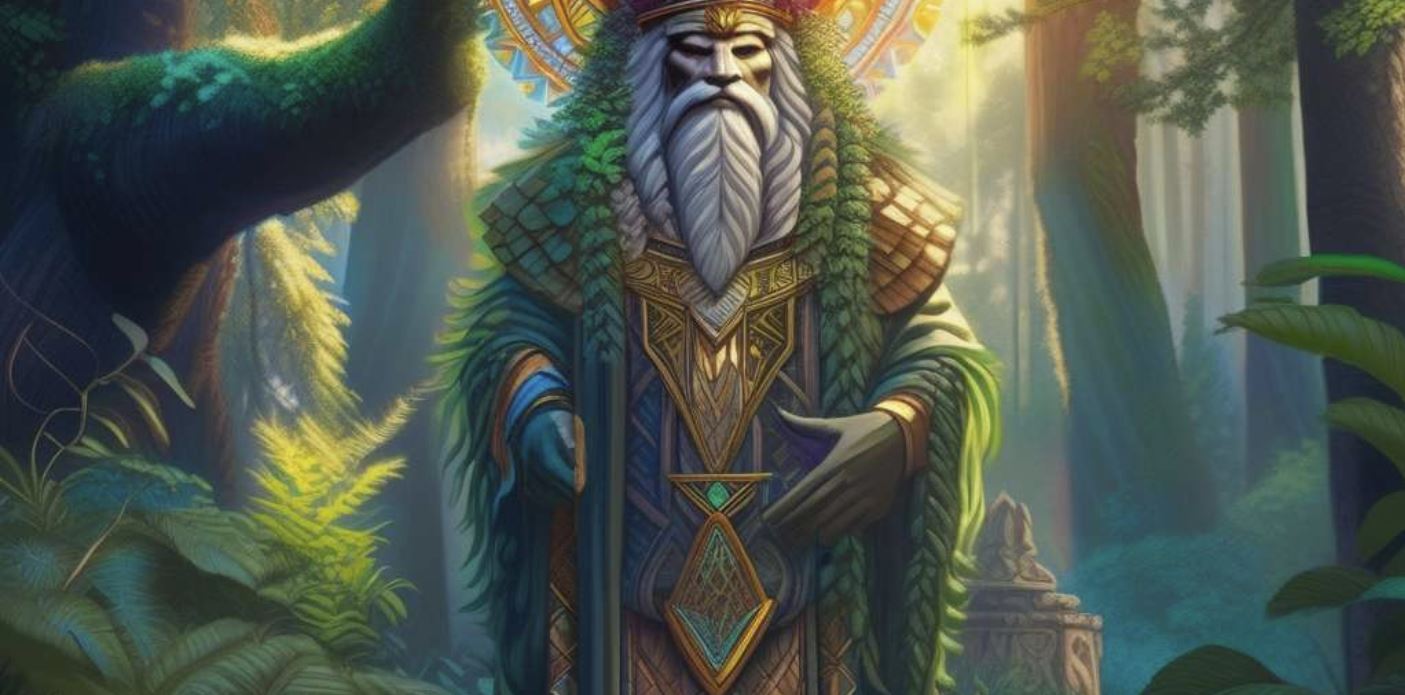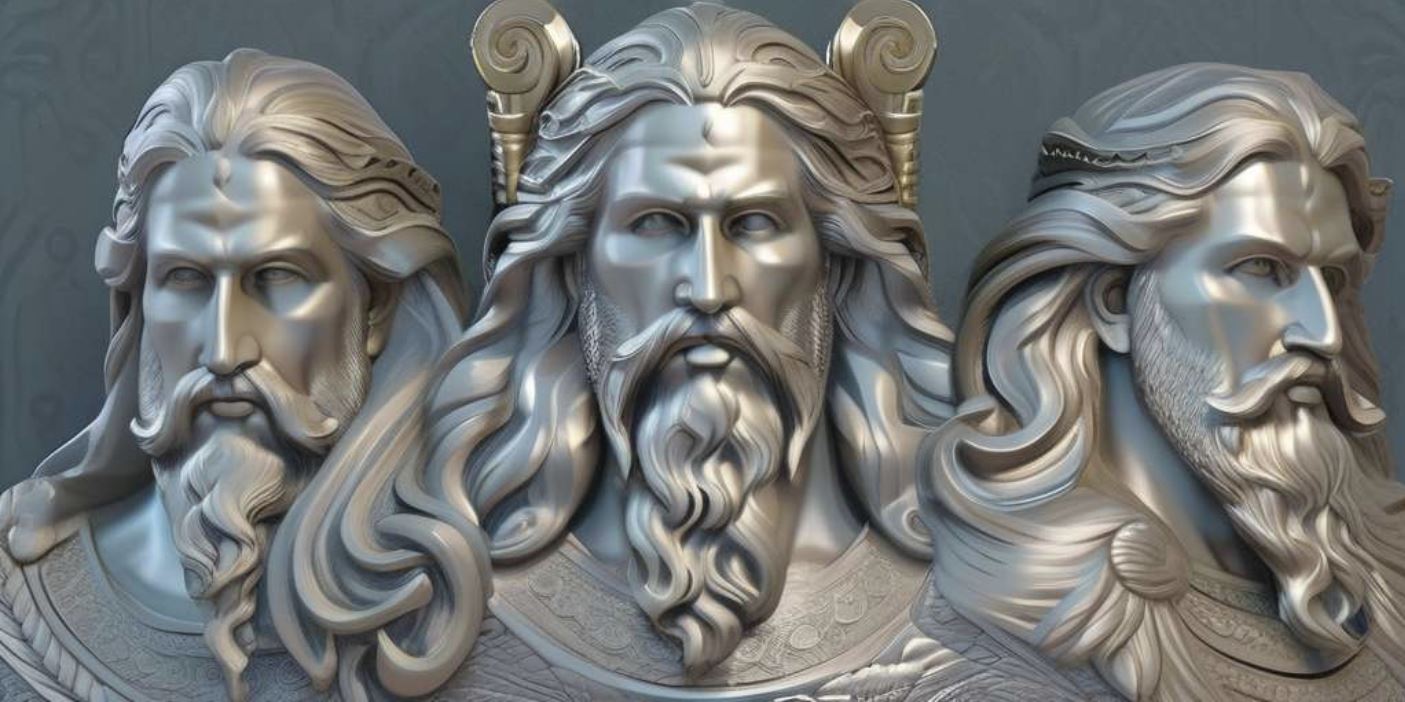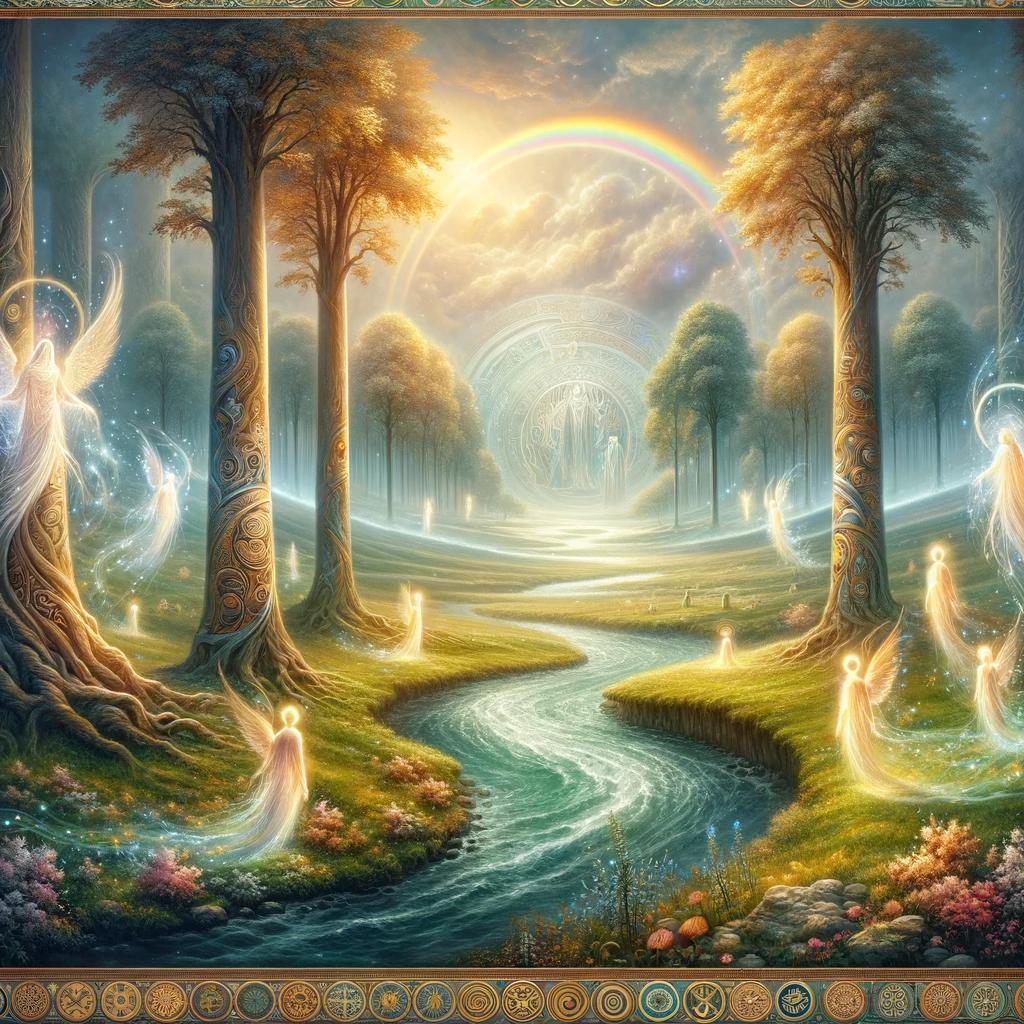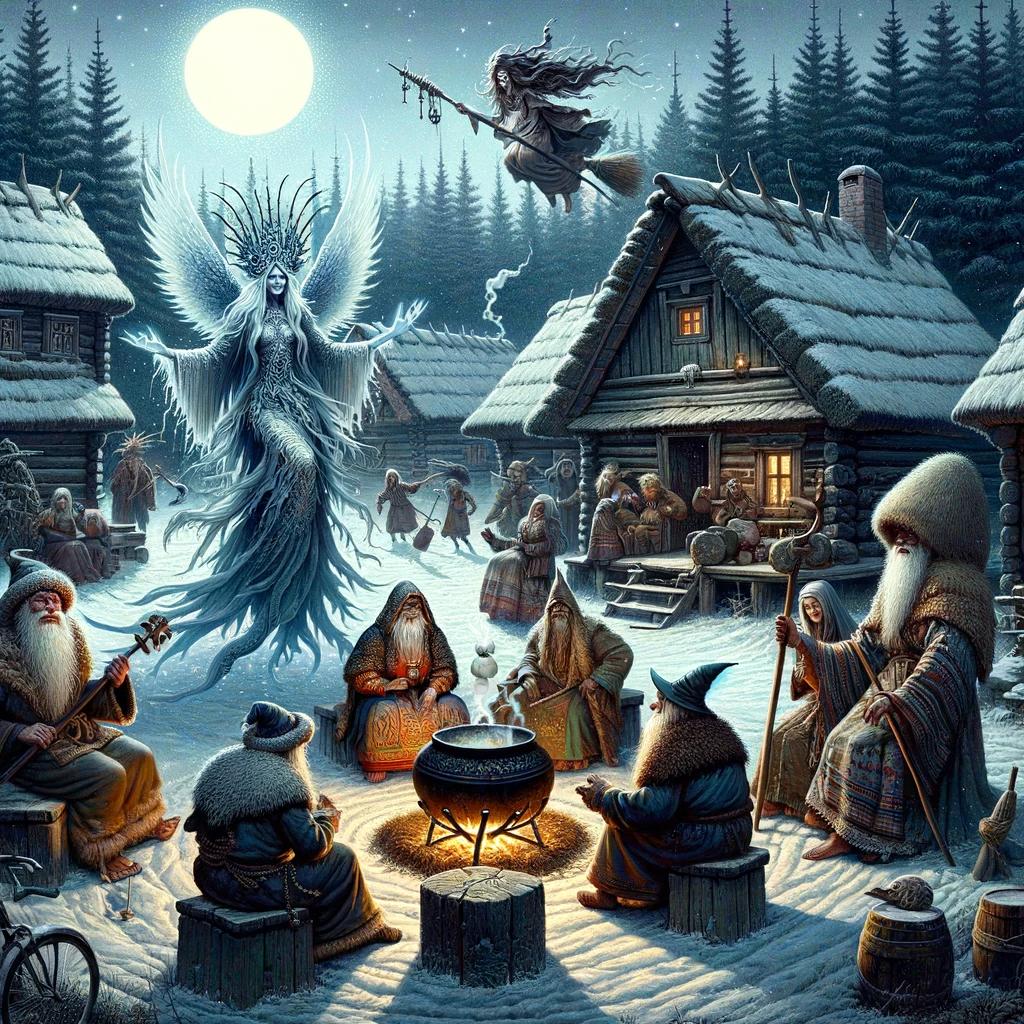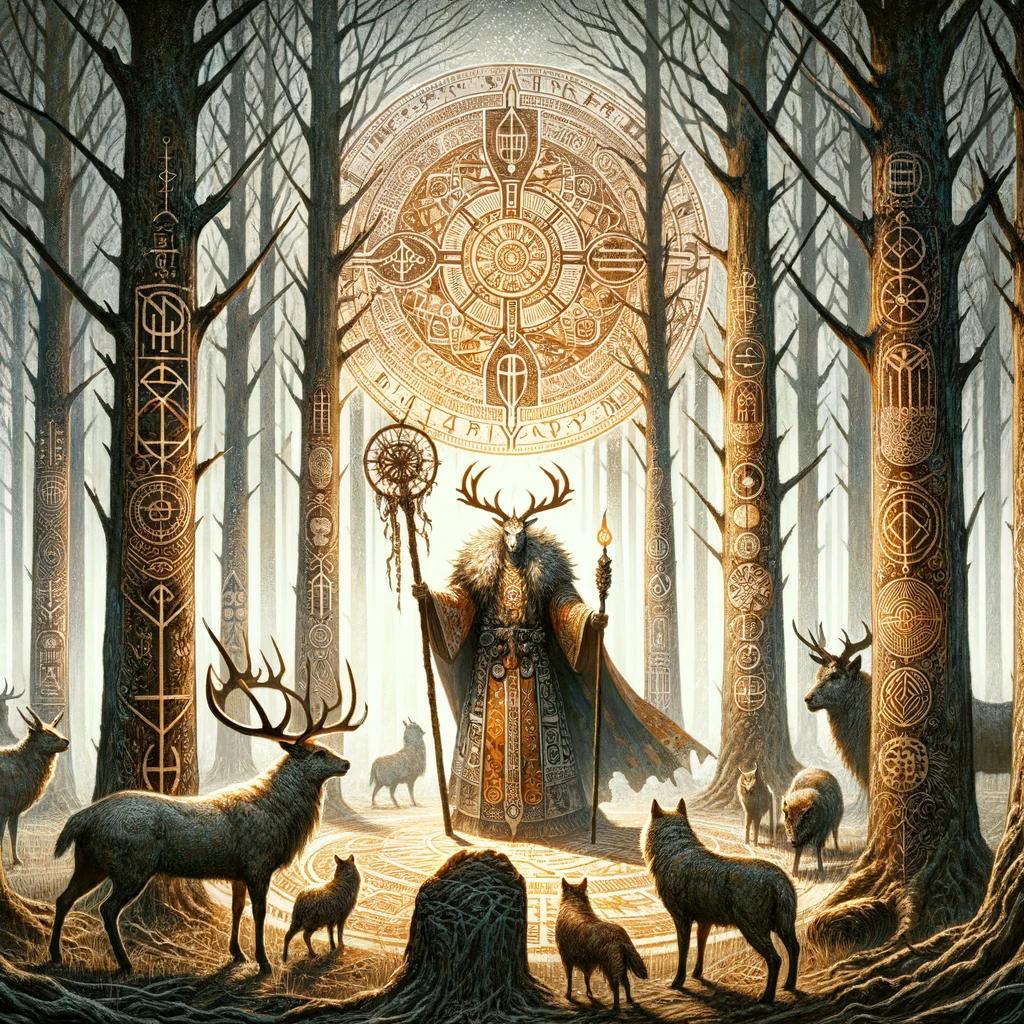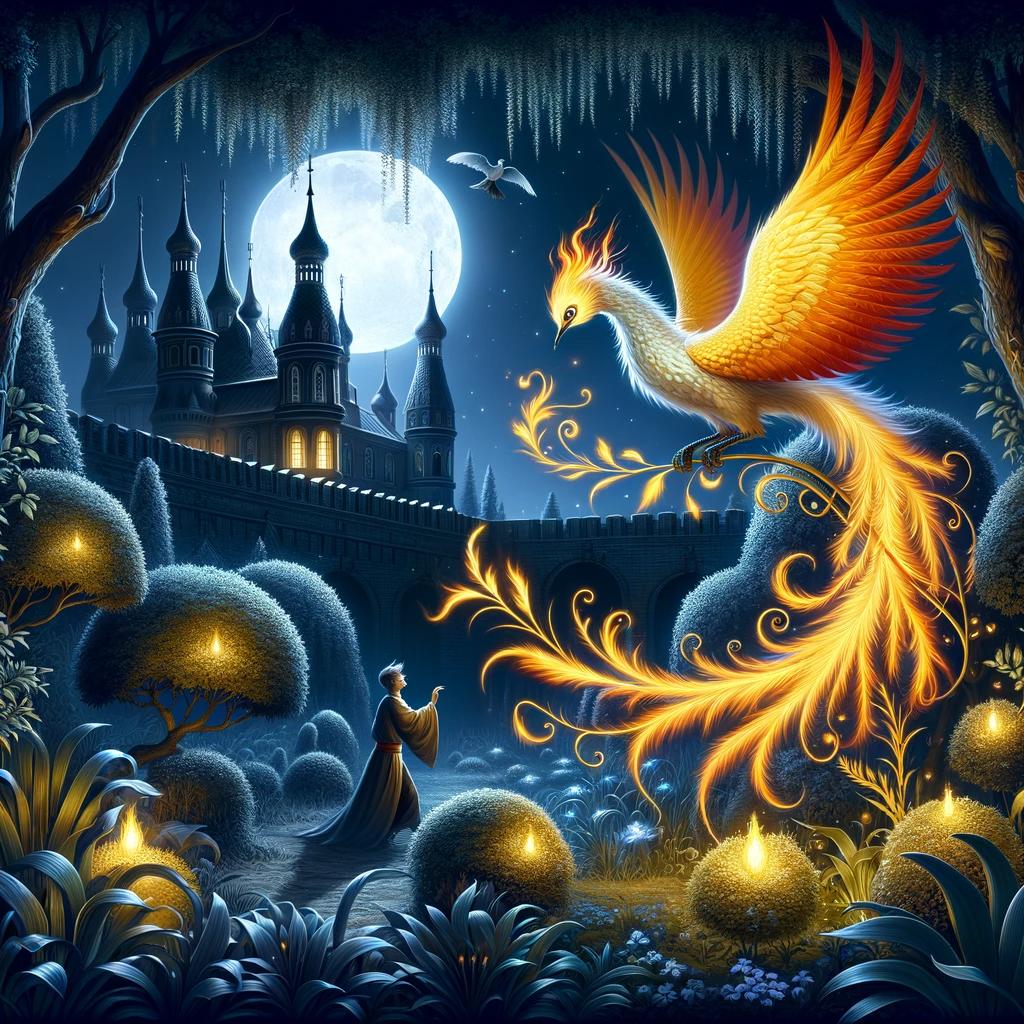Khors Slavic God: Unveiling the Sun God of Justice and Folklore
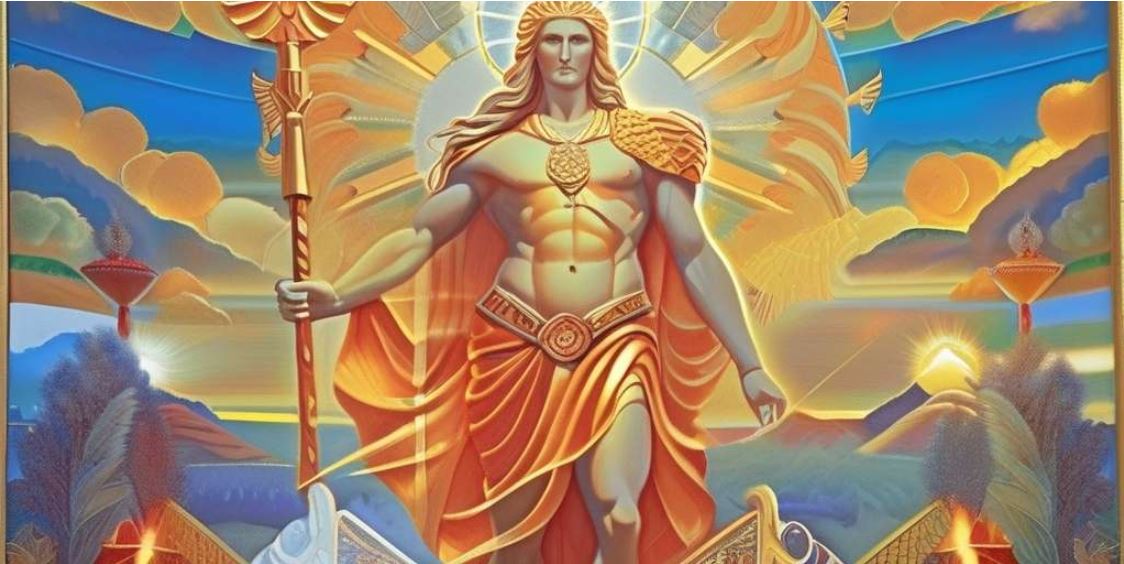
Khors, the Slavic god, is a significant figure associated with the sun, justice, and natural elements such as rain, fertility, and fire. The historical relevance of Khors can be traced back to mentions in the Primary Chronicles and the traditional folklore of the Slavic culture.
This article delves into various aspects of Khors’ role in mythology, linguistic connections with other solar deities, and the worship practices followed in pre-Christian Slavic culture. Additionally, the origins of the name Khors are analyzed, highlighting its potential ties to Persian and Indo-European languages.
Explore the intriguing symbolism and importance of Khors in Slavic folklore.
Understanding Khors: The Slavic Sun God
Khors, the Slavic sun god, holds a significant place in ancient Slavic mythology. As the embodiment of the sun and justice, Khors symbolizes power, light, and the natural order of the world.
Revered for his association with rain, fertility, and fire, Khors is an integral part of Slavic folklore.
Mentions of Khors can be found in historical texts such as the Primary Chronicles, highlighting his prominence in pre-Christian Slavic worship. Despite the lack of precise knowledge regarding his exact function, Khors is consistently mentioned alongside the mighty Perun, positioning him as one of the most revered deities in the Slavic pantheon.
Notably, Khors is often linked to Dazhbog, another sun deity, possibly representing different aspects of the sun’s power. The linguistic connections between Khors, Dazhbog, and even Perun, suggest an intriguing interplay within Slavic mythology that reflects the broader Indo-European solar deities.
Exploring the origin of the name Khors, several theories have emerged. The popular belief associates it with Persian and Ossetian languages, referencing words for “sun” and “fire.” However, some experts propose alternative roots and phonetic challenges, leading to debates among religious scholars and linguists.
Unveiling the role and significance of Khors in Slavic folklore provides valuable insights into ancient belief systems and cultural heritage. Understanding this sun god sheds light on the spiritual and mythical worldview of our Slavic ancestors.
The Role of Khors in Slavic Mythology
In Slavic mythology, Khors holds a significant role as the revered sun god. As the deity of the sun and justice, Khors represents the powerful forces of light, warmth, and righteousness.
His depiction as a god of rain, fertility, and fire further cements his status as a crucial figure in Slavic mythology and spirituality.
These historical references to Khors underscore his prominence within the pre-Christian Slavic belief system, revealing the deep-rooted connection between the sun and the concepts of justice, fertility, and natural elements.
By delving into the Primary Chronicles, scholars and enthusiasts alike gain valuable insights into the reverence and importance attributed to Khors in ancient Slavic society, painting a vivid picture of the intricate religious practices and folklore that revolved around this esteemed sun god.
Exploring these historical references allows us to appreciate the lasting impact of Khors in Slavic culture and folklore, further enriching our understanding of this fascinating deity and his enduring significance.
Khors and the Concept of Justice in Slavic Folklore
In Slavic folklore, Khors, the sun god, is closely associated with the concept of justice. As a deity representing the sun, Khors is seen as the bringer of light and truth, and therefore, a symbol of righteousness and fairness in Slavic mythological traditions.
In Slavic folklore, Khors’ role as the god of justice is depicted through various stories and legends. He is often portrayed as an impartial judge, ensuring that justice prevails and the righteous are protected.
His association with justice serves as a reminder to uphold moral principles and strive for equitable treatment, both in interpersonal relationships and within society as a whole.
These deities, associated with the sun and celestial powers, intertwine in various narratives, reflecting the complexities of Slavic belief systems.
The interconnectedness of these three deities is further highlighted by linguistic connections. Comparative analysis reveals similarities between their names and those of Indo-European solar deities, indicative of a shared root. These linguistic parallels provide valuable insights into the historical and cultural exchanges among different ancient cultures.
Exploring their overlapping roles and shared characteristics provides a deeper appreciation of the ancient Slavic worldview and the celestial forces they worshipped.
There are also associations with Persian and Indian terms denoting “halo” and “fire.” However, alternative hypotheses propose that the name might have been borrowed from the Ossetian word xorz, meaning “good,” or even trace its roots back to a Proto-Indo-European source.
The name Khors shares similarities not only with Dazhbog, another sun god, but also with the prominent deity Perun. This suggests a potential connection between these deities in Slavic mythology.
Exploring the linguistic aspects surrounding Khors adds another layer of understanding to the ancient Slavic beliefs and their cultural influences. By examining the possible origins of the name Khors, we gain deeper insights into the significance of this sun god in Slavic folklore and its potential ties to broader Indo-European solar deities.
Khors’ Association with Sun, Rain, Fertility, and Fire
Khors, the Slavic god, holds a significant role in Slavic mythology, being closely associated with various aspects of nature. Among these, Khors is particularly linked to the sun, rain, fertility, and fire, embodying their power and symbolism.
As the god of the sun, Khors represents the radiant energy that brings light and warmth to the world. The Slavic people revered him as the source of life and growth, acknowledging his influence on agriculture and the fertility of the land.
Additionally, Khors’ association with rain reflects his connection to the natural cycle of water, which sustains life and ensures bountiful harvests. The Slavic communities relied on his divine intervention to provide adequate rainfall and prevent droughts that could jeopardize their livelihoods.
Furthermore, Khors’ affiliation with fertility extends beyond the agricultural domain. In Slavic belief, he also played a vital role in human reproduction and the growth of families, bestowing blessings upon couples aspiring to have children.
Finally, as the god of fire, Khors symbolizes both its life-giving and destructive qualities. Fire not only brings warmth, light, and protection, but it also possesses the power to cleanse and regenerate.
Khors’ association with fire represents his role in purifying and renewing the world.
Overall, Khors’ association with the sun, rain, fertility, and fire underscores his significance in Slavic mythology, as he embodies essential forces of nature that sustain life, growth, and prosperity.
Exploring the Worship of Khors in Pre-Christian Slavic Culture
Pre-Christian Slavic culture encompassed a rich tapestry of religious practices, and the worship of Khors held a significant place within it. Khors, known as the god of the sun, justice, rain, fertility, and fire, commanded reverence from the Slavic people.
The worship of Khors often took the form of rituals and ceremonies conducted in sacred spaces, such as forests or mountaintops, where the sun’s rays illuminated the proceedings. These rituals aimed to honor Khors, seek his blessings, and ensure favorable conditions for the agricultural cycle.
During these ceremonies, offerings were made to Khors, typically including grains, fruits, and flowers, symbolizing fertility and abundance. Prayers and hymns were recited, praising Khors’ power, benevolence, and role in maintaining the natural order.
Furthermore, Khors’ association with justice brought a sense of moral obligation in the worshipper’s conduct. Following ethical principles and treating others with fairness and equity were seen as a way to honor and align with Khors’ values.
As the Slavic people integrated into Christianity over time, the worship of Khors gradually diminished. However, traces of this ancient practice can still be found in folklore, traditional songs, and cultural customs.
Exploring the worship of Khors in pre-Christian Slavic culture sheds light on the spiritual and moral dimensions that shaped the lives of these communities and underscores the profound influence of Khors as a deity.
Common Questions and FAQs about Khors, the Slavic God
Curious about Khors, the Slavic god associated with the sun and justice? Here are some common questions and answers about this fascinating deity:
- What is the significance of Khors in Slavic mythology?
Khors holds great importance as the god of the sun, justice, rain, fertility, and fire in Slavic mythology.
His association with these elements symbolizes his power and influence over various aspects of life.
- style=”list-style-type: none;”>
- How is Khors depicted in Slavic folklore?
In Slavic folklore, Khors is often portrayed as a radiant and powerful figure, emanating light and justice.
He is sometimes depicted riding a fiery chariot across the sky, bringing light, warmth, and fertility to the land.
Khors, Dazhbog, and Perun are all Slavic deities associated with the sun and have interconnected roles in mythology.
While Khors represents the sun’s warmth and justice, Dazhbog is often considered an epithet of Khors, and Perun signifies the thunder and lightning aspect of solar power.
- How was Khors worshipped in pre-Christian Slavic culture?
Worship of Khors in pre-Christian Slavic culture involved offering prayers and sacrifices to honor his role as the bringer of light and justice.
Rituals and celebrations often took place during important agricultural periods, highlighting his connection to fertility and abundance.
- What are the linguistic origins of the name ‘Khors’?
The name ‘Khors’ has various proposed origins. Some theories connect it to Persian and Osetian words for ‘sun,’ ‘halo,’ and ‘fire,’ emphasizing the potential influence of Iranian languages.
However, linguists have debated these theories due to phonetic and historical challenges.
Symbolism and Importance of Khors in Slavic Folklore
In Slavic folklore, Khors holds great symbolism and plays a significant role in the mythological beliefs of the ancient Slavic people. Revered as the god of the sun and associated with justice, Khors embodies power, light, and guidance.
Khors’ connection to the sun represents its life-giving and vitalizing energy. As the source of light and warmth, the sun symbolizes hope, prosperity, and renewal. Khors’ association with justice emphasizes the divine order and cosmic balance that he brings to the world.
Furthermore, Khors’ role as a god of fertility aligns with the agricultural importance in Slavic culture. Farmers and villagers would seek Khors’ blessings to ensure bountiful harvests and abundant growth. In this context, Khors represents abundance, prosperity, and the cycle of life.
The association of Khors with fire also adds to his symbolism. Fire symbolizes purification, transformation, and protection. It is seen as a purifying force, removing impurities and bringing clarity. Additionally, fire is considered a protective element, warding off evil forces and providing warmth and light.
The importance of Khors in Slavic folklore is evident through the frequent mentions in historical sources and its integration into traditional Slavic customs. Khors’ symbolism as a sun god, guardian of justice, and bestower of fertility creates a deep connection with the ancient Slavic people, shaping their beliefs and practices.
Unraveling the Linguistic Ties between Khors and Indo-European Solar Deities
Khors, the Slavic god associated with the sun, has sparked intrigue among scholars due to its potential linguistic connections with Indo-European solar deities. Through thorough analysis and comparative studies, experts have unearthed fascinating similarities between Khors and other sun gods worshipped across various Indo-European cultures.
The examination of linguistic elements in the name “Khors” provides valuable insights. Some propose a possible link to the Old Persian word خورشید (xuršit), meaning “sun.” Additionally, connections have been made to the osetio xor, which also translates to “sun.”
These affiliations raise intriguing possibilities regarding the shared origins and myths surrounding solar deities in ancient Indo-European cultures.
Moreover, the broader investigation extends beyond name resemblances. Comparative folklore studies have discovered similar characteristics and themes associated with solar deities in various Indo-European traditions. The significance of the sun’s life-giving powers, its association with fire and warmth, and its role in fertility and agricultural abundance are recurring motifs seen in the mythologies surrounding Khors and other solar gods.
By unraveling these linguistic ties and exploring the deeper connections between Khors and Indo-European solar deities, scholars gain valuable insights into the shared cultural threads that stretched across ancient civilizations. This understanding sheds light on the interwoven tapestry of beliefs and mythologies that influenced the lives and worldview of the Slavic people and their counterparts in other Indo-European societies.
…………

